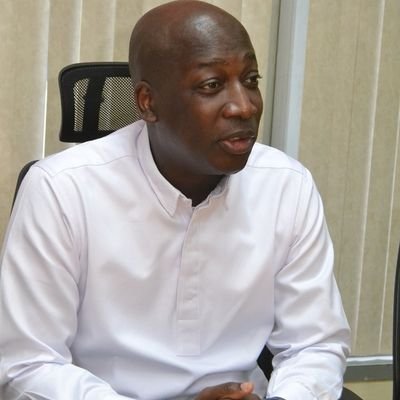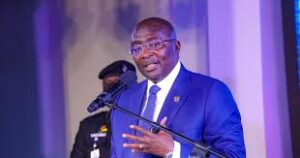Yaw Nsarkoh Calls for Greater Transparency in Campaign Financing to Bolster Democracy

Renowned corporate executive and governance advocate, Yaw Nsarkoh, has called for urgent and sweeping reforms in Ghana’s political campaign financing system, warning that the current opacity risks eroding the country’s democracy and entrenching elite control.
Delivering a lecture at the Ghana Academy of Arts and Sciences (GAAS) last Thursday, Nsarkoh warned that the unregulated nature of campaign finance in Ghana allows for unchecked influence by powerful interests. The lecture, titled “Iniquities of Inequity in Our Santa Claus Democracy,” critiqued the transactional and short-termist nature of the country’s political culture and its contribution to rising inequality and democratic decay.
“No one truly knows how much candidates spend. There’s no clarity on where the funds come from. And there are no binding laws to ensure this information is made public,” Nsarkoh noted. “This lack of transparency is the gateway to corruption, money laundering, and a system where political pay-through becomes the norm.”
According to Nsarkoh, the current situation enables a narrow elite to dominate political outcomes by bankrolling elections, undermining citizen participation and accountability in governance. He described this trend as a defining feature of what he terms “Santa Claus democracies”—political systems that revolve around patronage, populist giveaways, and short-term appeasement instead of long-term policy development and institutional integrity.
The event, attended by members of GAAS, academics, professionals, students, and civil society actors, explored how democracy in Ghana and across much of Africa has become hollowed out, reduced to electoral rituals devoid of substantive policy engagement or public empowerment.
Nsarkoh revealed that even the Electoral Commission lacks comprehensive data on political campaign expenditures, citing a senior official’s admission. He criticized Ghana’s 1992 Constitution and related legislation for failing to mandate financial transparency in politics—what he described as a dangerous legal vacuum that benefits both major parties, the New Patriotic Party (NPP) and the National Democratic Congress (NDC).
“This infernal crater is the source of systemic dysfunction,” Nsarkoh stated, suggesting that entrenched political interests have avoided reform to preserve their grip on power.
He called for a coalition of civil society, media, and reform-minded politicians to push for legislation that would require political actors to disclose campaign donations and expenses in real time. Such laws, he argued, should be backed by an independent oversight body with the authority to enforce compliance and impose sanctions.
“If we do nothing else in the fight against corruption, let us fix this. It will be difficult, yes—because those who benefit will resist change. But we must commit to cleaning up the system with determination,” Nsarkoh urged.
The former Unilever Global Markets executive also linked the lack of campaign finance transparency to ineffective governance and weak policy delivery. He questioned whether Ghana’s dominant parties are truly people-centered or simply electoral machines built to serve elite backers.
Nsarkoh further advocated for internal reform within political parties, including the creation of party academies that prioritize ideological development, policy training, and intellectual discipline—citing examples from China and Singapore.
He warned that the cost of participating in politics remains prohibitively high for most Ghanaians, effectively excluding the poor and uneducated from meaningful engagement. “A small urban elite has captured state power, sidelining the majority who lack the resources or voice to participate,” he said.
While acknowledging Ghana’s record of nine successful elections since the return to constitutional rule in 1992, Nsarkoh cautioned that electoral stability alone is not enough. True democracy, he said, must translate into improved livelihoods and a responsive government.
He cited recent data from the Ghana Statistical Service showing that over 70% of citizens feel disconnected from decision-making, describing this as a damning reflection of Ghana’s democratic promise.
In closing, Nsarkoh called for a renewed focus on strengthening public institutions, empowering citizens, and delivering tangible socio-economic benefits to build a democracy that works for all—not just the privileged few.






